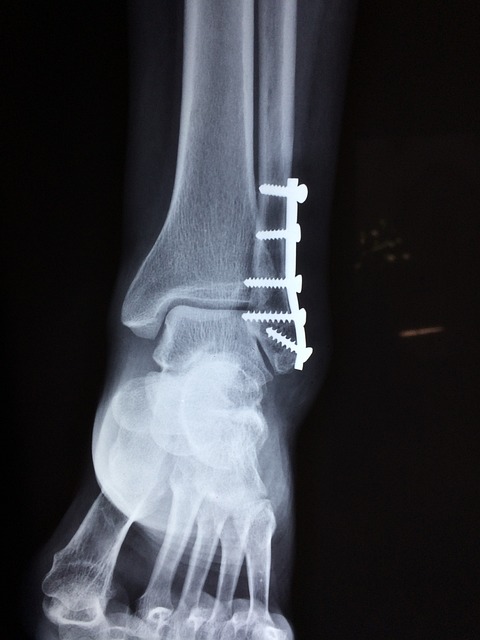Understanding Medication Options for Major Depressive Episodes
Medication can be an important part of care for major depressive episodes, whether delivered in person or via telehealth. This article summarizes common medication classes, how psychiatrists use assessment and screening to guide choices, considerations for co-occurring conditions, and how to find local services and telepsychiatry options.

Major depressive episodes can involve persistent low mood, loss of interest, sleep disruption, and changes in appetite or concentration. Psychiatrists evaluate symptom patterns, duration, and severity alongside screening for suicidal thoughts, substance use, and medical contributors before recommending medication or therapy. Medication is one component of a broader treatment plan that may include psychotherapy, counseling, behavioral interventions, and lifestyle supports. Treatment goals focus on symptom reduction, functional recovery, and relapse prevention. This article summarizes medication categories, assessment and diagnosis processes, and considerations for anxiety, insomnia, substance use, neurobiology, and service access, including telehealth.
This article is for informational purposes only and should not be considered medical advice. Please consult a qualified healthcare professional for personalized guidance and treatment.
Medication choices for depression and bipolar
Antidepressants commonly used for major depressive episodes include selective serotonin reuptake inhibitors (SSRIs), serotonin–norepinephrine reuptake inhibitors (SNRIs), atypical antidepressants, and, in specific situations, tricyclics or monoamine oxidase inhibitors. For bipolar depression, treatment typically emphasizes mood stabilizers or certain atypical antipsychotics rather than standard antidepressants alone, because antidepressants can risk mood switching. Psychiatrists weigh prior treatment response, side effect profiles, medical comorbidities, and patient preferences when recommending medication. Rapid-acting options such as ketamine or esketamine are sometimes considered in severe, treatment-resistant cases under specialist care.
How assessment and diagnosis guide treatment
A comprehensive assessment and formal diagnosis guide safe medication choices. Psychiatrists conduct structured interviews, screening tools, and medical review to distinguish unipolar depression from bipolar disorder, assess suicide risk, and identify co-occurring anxiety, insomnia, or substance issues. Medication selection depends on diagnosis, symptom pattern, prior medication history, and interactions with other drugs. Follow-up appointments monitor therapeutic response and side effects; dose adjustments typically occur over weeks. Shared decision-making and clear discussion of expected timelines help set realistic expectations for symptom improvement and recovery.
Addressing anxiety and insomnia with medication
Anxiety and insomnia commonly accompany major depressive episodes and influence medication strategy. Some antidepressants, like certain SSRIs and SNRIs, can reduce both depressive and anxiety symptoms over time, while sedating antidepressants or short-term hypnotics may be used cautiously to address insomnia. Benzodiazepines can relieve acute anxiety but carry risks for dependence and are generally limited in duration. Psychiatrists often combine medication with therapy, such as cognitive behavioral therapy for insomnia (CBT-I) or anxiety-focused counseling, to address sleep architecture and long-term coping skills alongside pharmacologic intervention.
Screening for substance use and medication safety
Substance use screening is essential before starting medication because alcohol or other substances can affect both symptoms and medication effectiveness. Some medications interact with substances or present higher risk when combined with alcohol or sedatives. Accurate information about prescriptions, over-the-counter medications, and supplements helps prevent adverse interactions. When substance use disorder co-occurs, coordinated intervention strategies—combining counseling, medication-assisted treatment when appropriate, and close monitoring—support safer, more effective depression care and better recovery prospects.
Neurobiology and medication intervention
Understanding neurobiology helps explain why medications can help relieve depressive symptoms. Many antidepressants modulate neurotransmitter systems (serotonin, norepinephrine, dopamine) implicated in mood regulation, while newer treatments may target glutamate pathways or neuroplasticity. Psychiatrists interpret emerging biological research alongside clinical evidence to tailor interventions. However, biological mechanisms are only one part of a comprehensive approach that includes psychotherapy, behavioral activation, social supports, and attention to medical or lifestyle factors influencing recovery and function.
Local services and telehealth providers
Access to psychiatric medication management and counseling can occur through clinics, hospitals, private practices, or telehealth platforms. Telepsychiatry expands access for people in areas with fewer local services and can provide medication assessment, follow-up, and coordination with therapists. Below is a selection of widely known providers and the kinds of services they offer; individuals should verify services, licensing, and availability in their area.
| Provider Name | Services Offered | Key Features/Benefits |
|---|---|---|
| Teladoc | Psychiatric consultation, medication management, therapy referrals | National telehealth platform with licensed psychiatrists and integrated care options |
| Amwell | Psychiatry and therapy via telehealth | Offers appointments with psychiatrists and therapists; platform with insurance partnerships |
| Brightside Health | Online psychiatric care focused on depression and anxiety | Structured medication management and measurement-based care for mood and anxiety symptoms |
| Psychology Today / Zocdoc (directories) | Provider search and appointment booking | Local provider listings for psychiatrists and therapists with profiles and specialties |
Prices, rates, or cost estimates mentioned in this article are based on the latest available information but may change over time. Independent research is advised before making financial decisions.
Conclusion
Medication options for major depressive episodes are diverse and chosen based on careful assessment, diagnosis, co-occurring conditions, and patient goals. Psychiatrists integrate neurobiological knowledge with clinical monitoring, screening for substance use, and coordination with therapy or counseling to support recovery. Telehealth expands access to psychiatric services, but individualized evaluation and follow-up remain central to safe and effective medication treatment.




